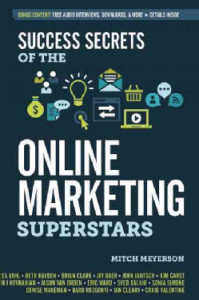No Need for Those Serious, Sometimes Fatal Effects

“In recent months, the FDA has been talking with drugmakers, medical groups and consumer groups about ways to make (pharmaceutical) ads clearer and drive home the most important safety risks,” reported the Chicago Tribune on August 11th. As an example, reporter John Russell talks about Humira, the best-selling drug in the world, made by AbbVie of North Chicago. While the video portion of the ad portrays an attractive, self-confident woman leading a very healthy and active lifestyle and modeling “that dress”, 35 seconds of audio informs viewers of all the “serious, sometimes fatal events” that can result from taking the drug.
While I’ll leave it to the FDA and the drug industry trade association to carry on their discussions about the optimal length of side effect warnings, I look at the issue from the point of view of a marketing content writer.
Just why do these ads, with 50% of their verbal content so negative, even frightening, work so well (at least well enough to entice pharma companies to keep shelling out millions of dollars to get them in front of consumers’ eyeballs)?
Science teaches us that visual content reaches our brains in faster and in more understandable ways than textual (or auditory) information. 40% of nerve fibers to the brain are connected to the retina (and not to the ears), Felicia Golden of eyeQ.com reminds us. In the Humira commercial, the images of that attractive woman doing yoga or dressing for a date cancel out, in large part, the awful list of drug side effects. (In fact, the fact that the effect of the warnings does get “cancelled out” is precisely the cause of concern on the part of the FDA.)
The main message of a blog is delivered in words. Where the visuals come in, whether in the form of “clip art”, photos, graphs, charts, or even videos, is to add interest and evoke emotion. People absorb information better when it is served up in more than one form.
There’s a second phenomenon to explore for blog content writers, which appears to contradict what we noted in the power of the visual portion of the Humira ad. The “negativity bias” refers to our tendency to attend to, learn from, and use negative information far more than positive information.
My experience with reading and creating hundreds, even thousands of different blog posts over the years tells me that if we blog writers can go right to the heart of any possible customer fears or concerns by addressing negative assumption questions even before they’ve been asked, we have the potential to breed understanding and trust.
If there are misunderstandings or negative myths surrounding our products and services, let’s get those questions – including the ones the readers don’t even know how to ask – out on the table. In the final analysis, I’m convinced, positive messages pack more power than negative ones. Add a visual, and you’ve got a winning formula!





Follow us online!